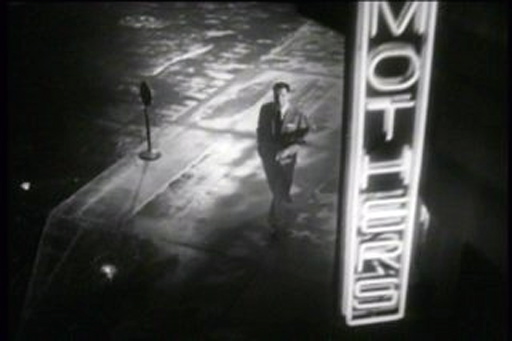July 22, 2014
I couldn’t sleep last night so I just got dressed and went to my diner on Greenwich Avenue, to have a cup of herbal tea. In case, I can go back to sleep later. I was worried by yesterday’s meeting I had with Doctor Menninger, my psychiatrist for the past three years. I suffer from depression that just doesn’t stop. In the middle of the night, while I’m in bed, I often started crying for no reason, at least in my mind I can’t find the source of this misery. He has given me a prescription and I have been taking it on a strict basis, but still, I can’t remove the darkness that seems to be tattooed on my brain. Being a rather vain man, people, especially girls, have commented that I have developed bags under my eyes, which are a pretty new visual for me. The utensils at this diner are very shiny, and I can see my reflection on the back of the spoon, and the first thing I notice are the bags. My face is very pale, and the darkness under my eyes disturbs me. Doctor Menninger, thinks I should think of other things besides yours truly.

The situation is I only know myself, and I don’t know that much about anything else. When I feel anything, emotionally speaking, it is always a bad feeling. If I had one philosopher or writer that I followed, it’s Amy Vanderbilt. Her “Complete Book of Etiquette” is as close to the Bible for me as possible. In the book, I found this quote that rings true to me: “Good manners have much to do with the emotions. To make them ring true, one must feel them, not merely exhibit them.” That and “do not speak of repulsive matters at the table” pretty much rules my thoughts on how one should interact with the world today. The problem with me is how far can I go with my emotions in a public space? My awkwardness just gets in the way, when I wish to express myself in a certain fashion, and usually I have to re-think how I should say or convey my feelings, so it won’t disturb or put people off.

When I want to communicate, that is the time or moment when I fail to do so. Which of course, triggers off my anxiety which leads to the crippling depression. The Vanderbilt book is an excellent guide for me to follow and also I can obtain information in the book in bite-size portions. Nonetheless, sometimes reading is very difficult, and I tend to read words off a computer or page, and I tend to wander into some abstract zone, where I find myself trapped with (again) the anxiety that seems to rule my conscience. Going to the cinema helps me in that I don’t have to think, it is just sitting there in front of a large screen and focusing on the images, and if I want, I can hear and digest the words coming from the actor’s words. “Taxi Driver” is a film that I have seen at least 25 times. I of course have the DVD, but when it originally came out in 1976, I would sit in a theater and watch that film over and over again. The first viewing I wasn’t practically paying any attention to it, the images off the screen were just background noise, so I can sit in the darkness and think or let my mind wander. Over time, and repeated screenings I started to pick up the anxiety of the main character, and that, oddly enough, helped me through the day.

The only other film besides “Taxi Driver” that had a huge effect on me was the “The Invisible Man” starring Claude Rains, directed by James Whale, and even the great Preston Struges had a hand in writing the script. I think what appealed to me was Rains’ interpretation of the invisible man and how one can be there, but not there. In other words, I often felt invisible to my peers, or in a crowd, and it’s moments like these, where I realize it doesn’t matter if I’m here or not. I often wonder if I should just enter the world, and totally subject myself to a cause or even a position in life, but the truth in the manner, is that I wouldn’t be in it for the purpose of that cause, but more to fill myself with a duty to prove that I’m alive and somehow I can make a difference out there. Then again, perhaps it is appropriate enough that I sit here and look at my reflection off the back of a spoon.










































































